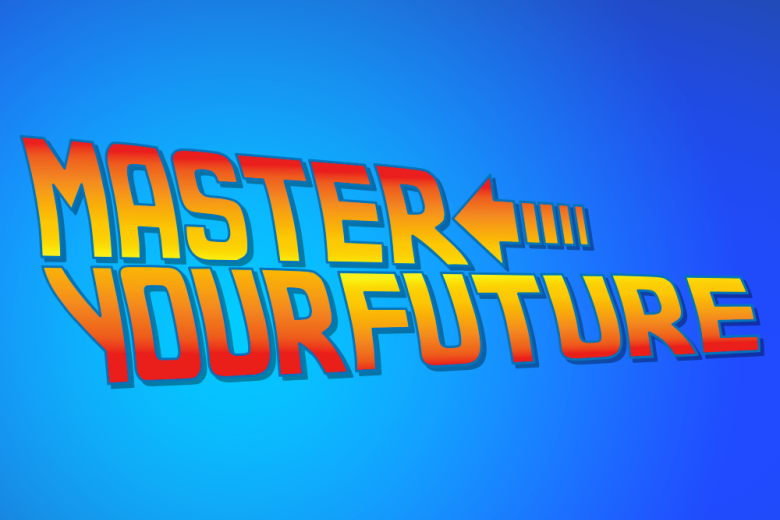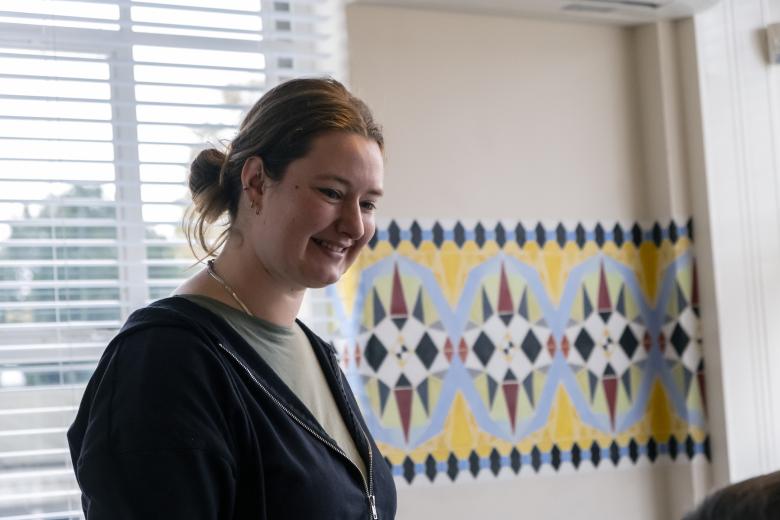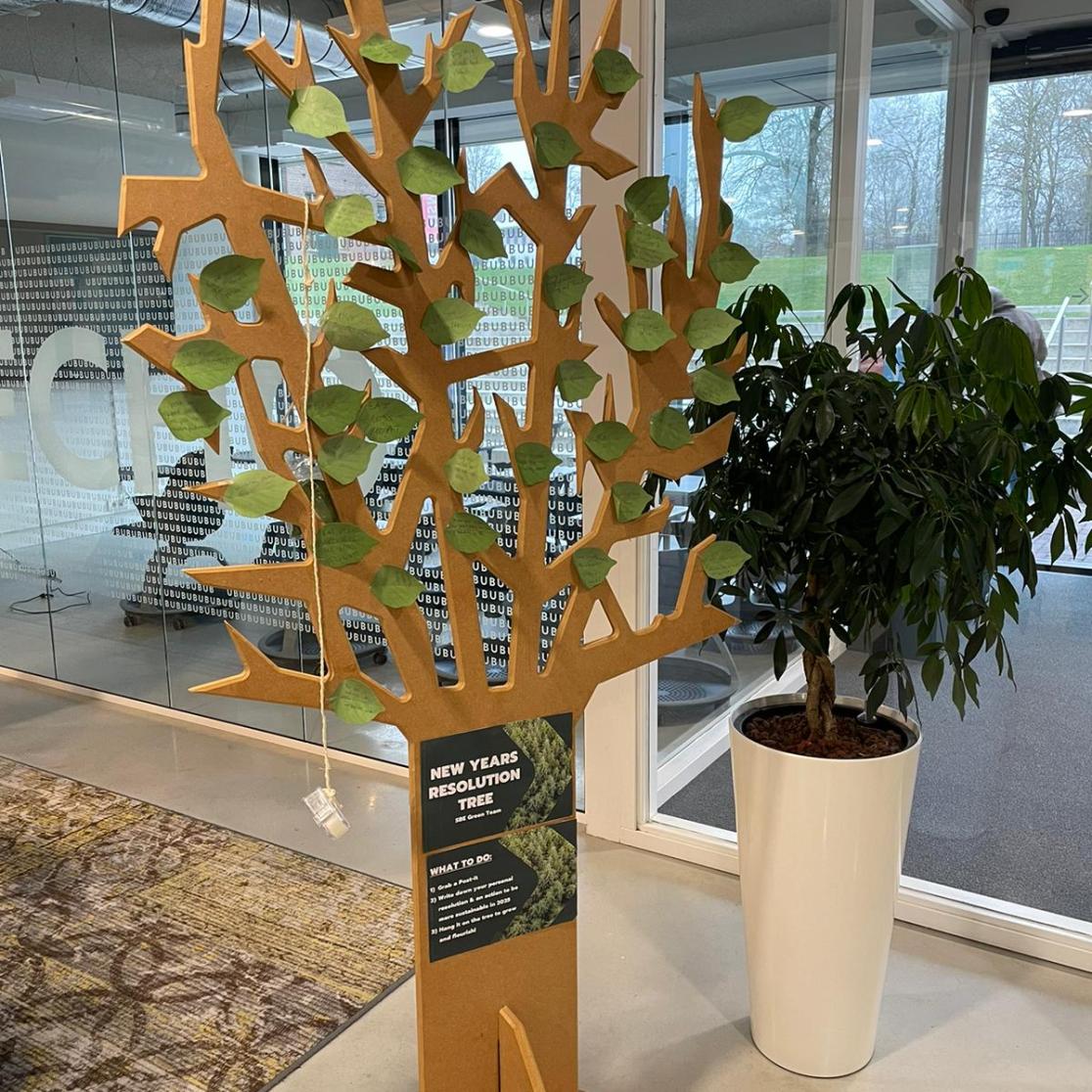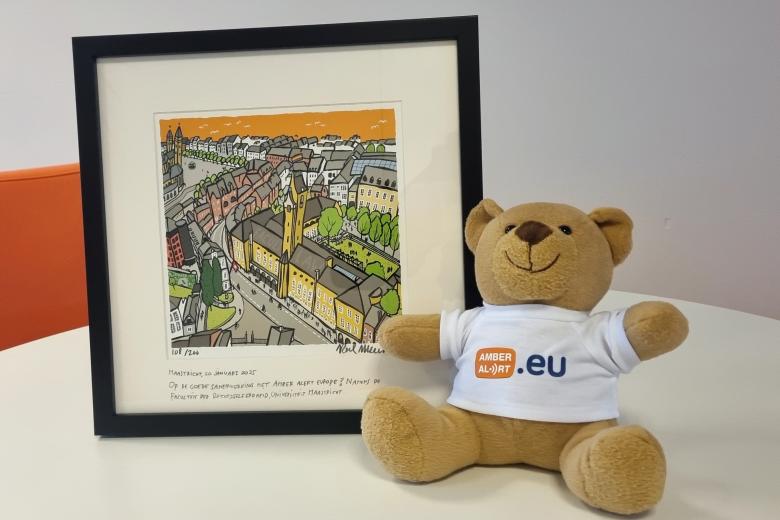Faculty of Law and AMBER Alert Europe join forces to protect missing children.
Master your future
- study information
The Faculty of Science and Engineering is organising a 'Master your Future' event exclusively for current UM bachelor’s students to make sure you have all the necessary information about our master's programmes.

Of course, the journey was not without its challenges. Adjusting to a learning environment that demanded independence took some time. But this challenge became an opportunity for growth. With determination and the right support, I learned to embrace self-directed learning, which turned into one of the most rewarding aspects of the programme.
Beyond academics, the sense of community and the opportunities I found within the programme, the university, and the city shaped my experience in profound ways. The friendships I built, the projects I participated in, and the memories I created will stay with me for years to come.
Now, I am studying in Costa Rica at the United Nations-mandated University for Peace, where I am exploring what peace truly means and how to educate for it. My studies focus on initiatives like educational interventions in crisis situations, which feel both urgent and transformative. The foundation I built in Global Studies—learning to approach complex global issues from multiple perspectives—was the perfect preparation for this programme. It sparked my curiosity, deepened my understanding of interconnected challenges, and instilled in me a desire to explore and contribute to meaningful change on a global scale.
To anyone considering Global Studies: if you are excited about shaping your own path and making the most of your education, this is the place for you. Take every opportunity that comes your way, embrace the experience, and enjoy the journey!
January 2025
Global Studies is a truly unique programme, primarily because of its approach to addressing issues from multiple disciplines simultaneously. By consistently applying this approach throughout the programme, I have been able to draw on knowledge from various fields in my Master’s in Public Policy and Human Development. This has been immensely beneficial, not only academically but also in helping me connect with people from diverse cultural and professional backgrounds.
I left the programme with countless memories. My fondest memories as a student are from my second and third years as a bachelor’s student. During this time, I truly took the opportunity to grow into myself and explore my relationships with both people and the world. I am deeply grateful to this programme for granting me that space and time during my studies. I am especially thankful for the empathy and compassion that this programme, and its community, have instilled in me.
If I could offer one piece of advice to those just beginning their journey in higher education, it would be to choose a programme that focuses on issues or aspects you are genuinely passionate about. Opting for a degree solely because it might lead to a high-paying career in the future is unlikely to bring you happiness or fulfilment, and it certainly won’t inspire you to make a lasting impact. The impact people can achieve when they genuinely care about the work they do is extraordinary and an unparalleled experience.
January 2025
When we asked Daphné more about what makes this programme unique, she replied:" Many things! First, the small student cohort (approximately 15 students). Second, the combination of substantive and methods courses, with the opportunity to specialise in a specific subject area – such as the History of Europe, Democracy in Europe, or International Relations – and to choose either a qualitative or quantitative research approach. Third, the workload – and it’s one of the few two-year Master’s programmes at FASoS.
From what I remember, it was a very demanding programme where I had to study a lot. There were many readings, and learning new research skills also takes time. I recall that Period 2 and Period 4 during the first year were the most challenging. However, it’s all worth it, as you eventually get to choose the topics you want to focus on for your assignments and research papers."
Daphne’s favourite course was not a course itself, but writing the master thesis during the second year of the programme: “It was very motivating to conduct my own research and work creatively with quantitative data – I for example created my own dataset for my research. I was also blessed to have a great supervisor (Dr. Yf Reykers) who provided very helpful feedback on my work and also supported me in my professional development.”
In addition to the rewarding experience of writing her thesis, she also encountered some challenges. She explained: "My biggest challenge was studying during the COVID-19 pandemic. I was enrolled in the Master’s programme from 2020 to 2022, a period when many lectures and tutorials had to be held online. For a time, I couldn’t (or could only rarely) go to the Faculty, and it was also more difficult to meet up with fellow students."
After graduating, Daphné began her PhD, meaning she doesn’t have to say goodbye to Maastricht just yet. Reflecting on her time as a student at FASoS, she shared: “My time at FASoS during the programme was amazing because I learned so much while being supported by the teaching staff in my work. This experience is also what inspired me to continue pursuing research. It was a major step in my academic development.”
When Daphné was asked to share more about her current job, she replied: “Im a PhD candidate at FASoS, focusing my research on contemporary policymaking for the protection of civilians in conflict, with a particular emphasis on how military administrations and NGOs collaborate on this issue. Specifically, I am examining the work carried out by NATO, the US, and the UN regarding civilian protection in conflict zones.
I have conducted extensive qualitative research interviews for my study, and I even had the opportunity to travel to the US last year to further my research. My work allows me to learn a great deal, and I truly enjoy developing both my research skills and my understanding of why and how civilians can be better safeguarded during conflicts. This issue feels more urgent than ever, as civilians are bearing an increasingly heavy burden in modern conflicts. I sincerely hope to use my knowledge and experience after completing my PhD to help reverse this troubling trend.
In addition to my research, I also occasionally teach in the BA European Studies programme. During 2024/2025, I will also be serving as a Junior Associate Fellow at the NATO Defense College.”
Lastly, we asked Daphné if she still keeps in touch with her fellow students or lecturers. She replied: “The FASoS staff are now my colleagues, and I’m happy to stay in touch with them!”
January 2025
When discussing the Problem-Based Learning (PBL) approach, Kornelia reflected on how this method has deeply shaped her learning experience. "PBL is about studying concrete examples from real life," she said, noting that the curriculum often touches on political and moral dilemmas, leading to engaging discussions and debates. She mentioned that the PBL approach has helped her retain information more effectively. "Talking about the topics in tutorials and revisiting key ideas from the readings makes it easier to internalise the content," she noted. For Kornelia, the benefits extend beyond the classroom, especially when it comes to writing exams and papers. "PBL encourages you to present studied content in your own words, which not only strengthens discussion skills but also makes it easier to defend your opinions."
As we asked Kornelia about her favourite courses, she excitedly mentioned Cultural Pluralism and Discourse Analysis. She explained that Cultural Pluralism is particularly interesting to her because it addresses real-world issues and challenges societal values. "It’s a course that made me think critically about what we believe should govern society," she said. Kornelia also appreciated Discourse Analysis for its ability to sharpen her critical thinking. "It made me pay more attention to the information I encounter daily," she explained. "Both of these courses, and Arts and Culture in general, deal with issues that are highly relevant to the real world."
When we asked Kornelia to share a memorable project or research experience, she recalled writing an academic paper during her first year as part of the Research and Writing I course. "It was the first time I had to write an academic paper, so the whole process was very interesting," she said. Her paper focused on memory studies, specifically the memory of the Polish peasantry, and she found the research process both engaging and rewarding. "I realised that academic writing gives me a lot of pleasure and satisfaction," Kornelia remarked, emphasising how valuable the experience was in shaping her academic interests.
Reflecting on how studying Arts and Culture has impacted her critical thinking and analytical skills, Kornelia explained that she began to notice the transformation in her second year. "It made me more confident in questioning and analysing information, not just in academics but also in daily life," she told us. "I find myself more confident when defending my opinions in discussions with friends." This shift in her thinking process has been one of the most rewarding aspects of her academic journey.
Kornelia has yet to participate in extracurricular activities but is eagerly looking forward to her upcoming exchange semester during her fifth semester. "I can’t wait for that experience," she said enthusiastically. She also recognised that the programme has prepared her well for her future academic and career aspirations. "Arts and Culture has given me a wider perspective on the world and society by introducing me to different points of view," she reflected. "More importantly, it teaches you how to think critically, a skill that will be valuable no matter what field I end up in."
When discussing her experience studying in Maastricht, Kornelia shared that moving to the city has been one of the best decisions of her life. "I fell in love with the city, and I’ve made some great friendships here," she said. She appreciates the student life in Maastricht, which offers plenty of opportunities for personal development. "Whether you’re into sports, music, or anything else, you can easily find others who share your interests." Kornelia, a member of UM Cheerleading and part of the MUSST board, finds being involved in the student community to be a vital part of the experience. "Meeting people and discovering new passions outside the classroom is definitely worth it," she advised.
When we asked her about the sense of community at FASoS, Kornelia mentioned how much she appreciates the supportive and approachable atmosphere at the faculty. "The students are friendly, and the professors are very approachable and supportive," she said. "We are encouraged to cooperate, whether it’s studying together or preparing for exams, which naturally leads to friendships." Kornelia emphasised how different FASoS feels from the stereotypical, more formal university environment. "Tutors are easily approachable, and I always feel comfortable asking for extra support if needed."
For prospective students considering the programme, Kornelia offered some practical advice: "I would suggest going through the curriculum of Arts and Culture to make sure it aligns with your interests. It's completely normal to feel stressed about choosing the right programme, so doing some research can help you make a more informed decision." She also emphasised the importance of taking your time in making such a significant choice.
If she could offer one piece of advice to her past self before starting the programme, Kornelia said, "On the first day of university, we were told to enjoy both the first day and the entire university experience. I think that was the only advice needed." She highlighted that everyone creates their own student experience and how important it is to make the most of the time at university.
Looking back on her journey in the Arts and Culture programme, Kornelia shared that one of the most rewarding parts has been recognising the relevance of what she’s studied in her everyday life. "It’s very satisfying to see the themes from class pop up in conversations outside of my programme," she said. "It makes me feel like what I’m learning truly matters in the real world."
Finally, Kornelia reflected on how the programme has influenced her worldview and personal development. "Arts and Culture has shown me different perspectives on societal issues and taught me how to form and defend my own opinions," she said. "The philosophy courses, especially in the first year, really changed the way I see the world and myself." Though she remains uncertain about her future plans, Kornelia is confident that the skills and perspectives she has gained will serve her well in both her personal and professional life. "This programme has provided me with tools that I find useful in everyday life and will definitely be valuable in my future career."
January 2025
Building careers, not just degrees – Daniëlle Zijlstra’s research on competency-based learning
Imagine university graduates entering the workforce with not just diplomas, but also the professional skills to collaborate, communicate,

Have you made any New Year’s resolutions this year? Perhaps some that focus on sustainability and making a positive impact on the planet?
Now’s your chance to bring those resolutions to life! SBE’s Green Team has placed two Resolution Trees in the city center, and we’d love for you to contribute. These trees, located at the entrances of Tapijnkazerne 11 and Tongersestraat 53, are a space for you to share your personal goals, pledges, and hopes - even for a greener future.
Whether it’s reducing waste, using more sustainable transport, or living a more eco-friendly lifestyle, come and leave your resolution on one of the trees! It’s a simple yet meaningful way to get involved and inspire others to take small steps towards sustainability.
Stop by and make your mark—let’s start the year off with a commitment to a better, more sustainable world!

